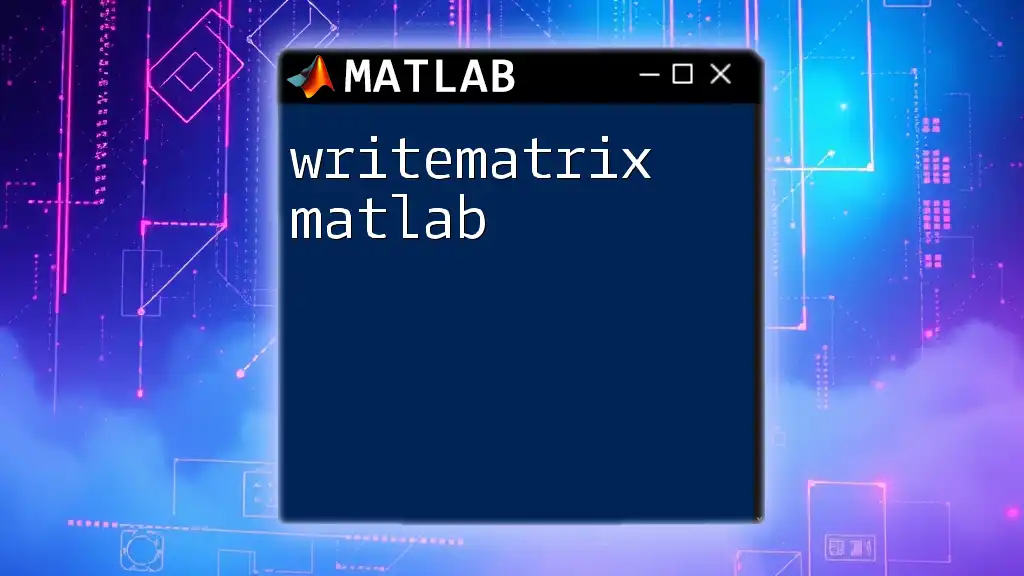The factorial of a number in MATLAB can be calculated using the built-in `factorial` function, which computes the product of all positive integers up to that number.
result = factorial(5); % Calculates 5! (5 factorial), which equals 120
Understanding Factorial
Definition of Factorial
The factorial of a non-negative integer \( n \) is a mathematical function denoted by \( n! \). It is defined as the product of all positive integers from 1 to \( n \):
\[ n! = n \times (n - 1) \times (n - 2) \times ... \times 3 \times 2 \times 1 \]
For example, \( 3! = 3 \times 2 \times 1 = 6 \). An important special case is that \( 0! = 1 \); by definition, the factorial of zero is one.
Importance of Factorials
Factorials have significant importance across various branches of mathematics, especially in:
- Combinatorics: They are used to calculate permutations and combinations.
- Probability Theory: Factorials help in determining probabilities and distributions.
- Statistics: They are utilized in many statistical formulas, including those related to distributions.

Factorial in MATLAB
Built-in MATLAB Function
MATLAB provides a built-in function for calculating factorials, making it easy to implement in your scripts. The syntax is as follows:
factorial(n)
Example:
To find the factorial of 5, you could use the following MATLAB code:
result = factorial(5);
disp(result); % Output will be 120
Input Data Types
Acceptable Types
The `factorial` function in MATLAB accepts:
- Positive integers: The primary expected input.
- Floating-point numbers: It will round the input to the nearest integer before computing the factorial.
Handling Edge Cases
Be mindful of edge cases:
- The factorial of 0 is defined as 1:
result = factorial(0); % Output will be 1
- If you try to compute the factorial of a negative integer, MATLAB will return an error:
result = factorial(-3); % Results in an error
Computing Factorials for Vectors and Matrices
In MATLAB, you can easily compute factorials for each element in an array. The `factorial` function can act on both vectors and matrices seamlessly.
Example:
Here’s how you compute the factorial of array elements:
arr = [1, 2, 3, 4];
result = factorial(arr);
disp(result); % Output will be [1, 2, 6, 24]

Writing Custom Factorial Functions
When to Write a Custom Function
While MATLAB’s built-in function is powerful, there may be scenarios where it isn’t suitable. For example, when handling larger numbers or specific calculation scenarios, you might want a custom solution.
Creating a Recursive Function
Here’s how you can write a recursive version of the factorial function:
function f = recursiveFactorial(n)
if n == 0
f = 1;
else
f = n * recursiveFactorial(n - 1);
end
end
To use this function, simply call it with an integer argument:
disp(recursiveFactorial(5)); % Output will be 120
Creating an Iterative Function
An iterative approach can also be more suitable in certain situations. Here’s how you can implement an iterative factorial function:
function f = iterativeFactorial(n)
f = 1;
for i = 1:n
f = f * i;
end
end
You can call this function the same way:
disp(iterativeFactorial(5)); % Output will be 120

Performance Considerations
Limitations of Factorial Calculations
Note that factorial values grow very quickly; for example, \( 20! \) is already 2,432,902,008,176,640,000. This rapid growth means that for large values of \( n \), the built-in function could result in numeric overflow.
Using `log` for Large Factorials
To address concerns around large factorials, you can compute logarithmically. Instead of calculating the factorial directly, computing the logarithm of the factorial can help you manage larger numbers and avoid overflow:
logFactorial = sum(log(1:n)); % Use this approach for large n

Common Errors and Troubleshooting
Understanding Error Messages
When using the `factorial` function, common errors include:
- Negative inputs will yield an error.
- Non-numeric inputs will also result in an error. Ensure you're passing integers.
Performance Tips
To optimize performance when dealing with large arrays or high values of \( n \):
- Consider using the `log` method or computing factorials in a batch process rather than element-wise where possible.
- Always check inputs and handle errors gracefully to prevent runtime issues.

Conclusion
In summary, understanding the `factorial` function in MATLAB is essential for anyone delving into mathematical computations. Factorials have widespread applications across various fields such as statistics, probability, and combinatorics. By leveraging both the built-in functions as well as creating custom implementations, you can handle problems related to factorial efficiently. Practice using MATLAB to deepen your understanding of these concepts, especially as they apply to your unique projects and areas of interest.

Additional Resources
- MATLAB Documentation Links: For more in-depth information, check the official documentation for the `factorial` command in MATLAB.
- Practicing Tools: Engage with MATLAB exercises to build your confidence and skillset in executing mathematical computations efficiently.

















